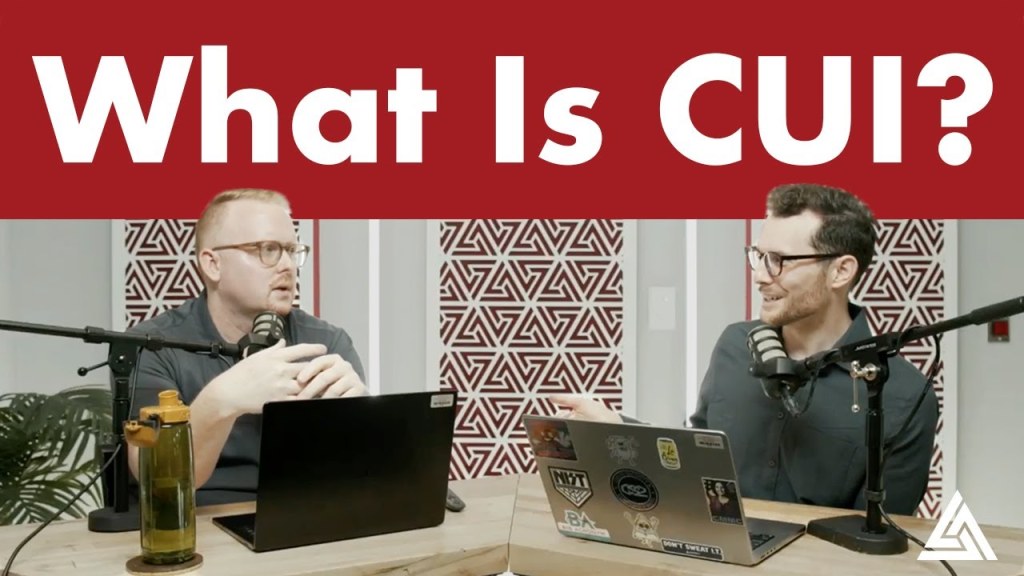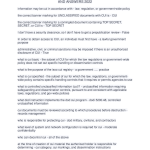Empower Your Rights: Navigate Administrative, Civil, Or Criminal Sanctions CUI
Administrative Civil or Criminal Sanctions CUI
Introduction
Welcome, True Crime enthusiast! In this article, we will delve into the world of administrative civil or criminal sanctions CUI. This fascinating topic explores the different types of penalties that can be imposed on individuals or organizations involved in classified information breaches. Let’s explore the details and implications of these sanctions to gain a comprehensive understanding of their significance in the world of national security.
2 Picture Gallery: Empower Your Rights: Navigate Administrative, Civil, Or Criminal Sanctions CUI


What are Administrative Civil or Criminal Sanctions CUI?
Administrative civil or criminal sanctions CUI refer to the legal consequences imposed on individuals or organizations for mishandling or unauthorized disclosure of Controlled Unclassified Information (CUI). CUI is sensitive information that is not classified as top secret but still requires protection due to its potential impact on national security.
Types of Administrative Civil or Criminal Sanctions CUI

Image Source: cloudfront.net
There are several types of sanctions that can be imposed for CUI breaches:
Administrative Sanctions: These penalties are imposed by government agencies and can include fines, suspension or revocation of security clearances, and other administrative actions.
Civil Sanctions: Civil sanctions involve legal proceedings in which individuals or organizations may be sued for damages caused by the unauthorized disclosure of CUI.
Criminal Sanctions: Criminal sanctions are the most severe and can result in criminal charges, fines, imprisonment, or a combination of these penalties.
Who Can Be Subject to Administrative Civil or Criminal Sanctions CUI?

Image Source: ytimg.com
Anyone who handles CUI, including government employees, contractors, and individuals outside of government organizations, can be subject to administrative civil or criminal sanctions for mishandling or unauthorized disclosure of this sensitive information.
When are Administrative Civil or Criminal Sanctions CUI Imposed?
Administrative civil or criminal sanctions CUI can be imposed when there is evidence of mishandling or unauthorized disclosure of CUI. This can occur during investigations, audits, or security clearance reviews conducted by government agencies.
Where Do Administrative Civil or Criminal Sanctions CUI Apply?
Administrative civil or criminal sanctions CUI apply within the jurisdiction of the United States. These penalties are enforced to ensure the protection of sensitive information and maintain national security.
Why are Administrative Civil or Criminal Sanctions CUI Important?
Administrative civil or criminal sanctions CUI are important for several reasons:
Deterrence: By imposing penalties on individuals or organizations, these sanctions serve as a deterrent to prevent future mishandling or unauthorized disclosure of CUI.
Accountability: Sanctions hold individuals or organizations accountable for their actions and ensure that they are aware of the consequences of mishandling sensitive information.
National Security: The protection of CUI is crucial for national security, and imposing sanctions helps to maintain the integrity and confidentiality of this information.
How Do Administrative Civil or Criminal Sanctions CUI Work?
The process of imposing administrative civil or criminal sanctions CUI involves several steps:
Investigation: Government agencies investigate suspected breaches of CUI to gather evidence.
Evaluation: The collected evidence is evaluated to determine if a violation has occurred and what sanctions are appropriate.
Notification: Individuals or organizations found to be in violation of CUI regulations are notified of the sanctions they will face.
Appeal: There may be a process for individuals or organizations to appeal the imposed sanctions.
Enforcement: Once the sanctions are finalized, they are enforced by the relevant government agencies.
Advantages and Disadvantages of Administrative Civil or Criminal Sanctions CUI
Like any legal framework, administrative civil or criminal sanctions CUI have their advantages and disadvantages:
Advantages:
Promote Compliance: Sanctions encourage individuals and organizations to comply with CUI regulations to avoid penalties.
Protect National Security: By penalizing unauthorized disclosure, these sanctions help protect national security interests.
Provide Accountability: Sanctions ensure that individuals or organizations are held accountable for their actions.
Disadvantages:
Potential Harshness: Some argue that the penalties imposed may be overly severe, especially in cases where there was no malicious intent.
Complexity: Understanding and navigating the legal framework surrounding administrative civil or criminal sanctions CUI can be challenging.
Resource Allocation: Enforcing sanctions requires resources and may divert attention from other important national security matters.
FAQs about Administrative Civil or Criminal Sanctions CUI
Here are some frequently asked questions about administrative civil or criminal sanctions CUI:
1. Can administrative civil or criminal sanctions CUI be imposed on individuals and organizations outside the United States?
No, these sanctions only apply within the jurisdiction of the United States.
2. Can administrative civil or criminal sanctions CUI be appealed?
Yes, individuals or organizations found in violation of CUI regulations may have the right to appeal the imposed sanctions.
3. Are administrative civil or criminal sanctions CUI only applicable to government employees?
No, these sanctions apply to anyone who handles CUI, including government employees, contractors, and individuals outside of government organizations.
4. Can administrative civil or criminal sanctions CUI result in imprisonment?
Yes, criminal sanctions can result in imprisonment, depending on the severity of the violation.
5. Do administrative civil or criminal sanctions CUI vary based on the type of CUI breached?
Yes, the severity of the breach and the type of CUI involved can influence the imposed sanctions.
Conclusion
In conclusion, administrative civil or criminal sanctions CUI play a crucial role in holding individuals and organizations accountable for mishandling or unauthorized disclosure of Controlled Unclassified Information. As a True Crime enthusiast, it is important to understand the significance of these penalties in maintaining national security and protecting sensitive information. By promoting compliance and providing accountability, these sanctions contribute to the overall integrity of the national security framework.
Final Remarks
Disclaimer: The information provided in this article is for educational purposes only and should not be considered legal advice. The intricacies of administrative civil or criminal sanctions CUI may vary, and it is essential to consult legal professionals or relevant government agencies for specific guidance.
This post topic: Criminal
